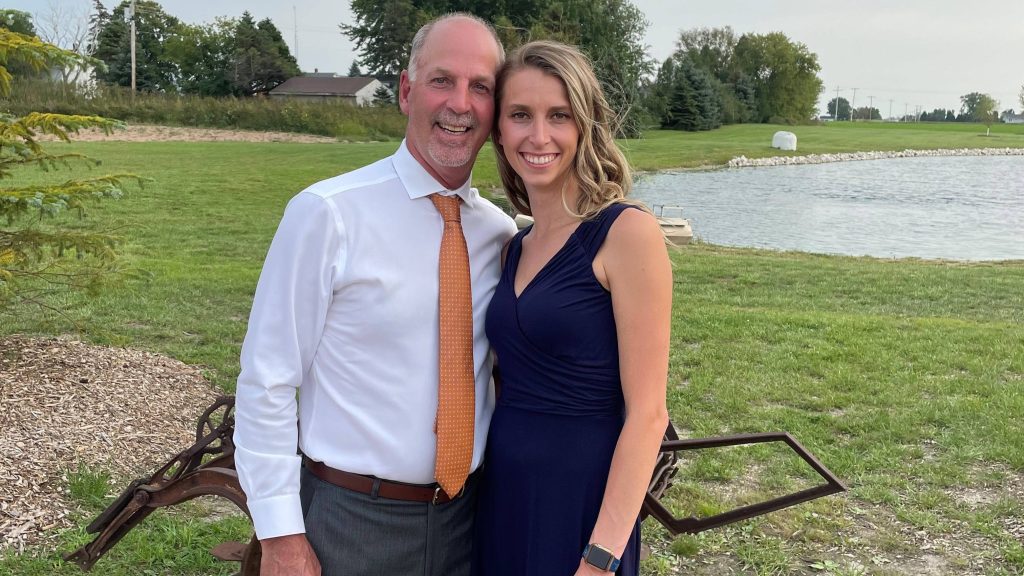
Paul Wennmacher calls his daughter Tabetha "my backbone." So it was tricky to keep a secret from her. His plan: Walk Tabetha down the aisle at her wedding.
It wasn't an easy task. Paul, of Belvidere, Illinois, has a slowly progressive form of Lou Gehrig's disease, a progressive nervous system disease that affects nerve cells in the brain and spinal cord, causing loss of muscle control. But with the help of his Mayo Clinic care team, Paul escorted Tabetha at her December 2022 wedding as she had always dreamed.
Paul says his Mayo care team helped make Tabetha's dream a reality. "If it wasn’t for all of my doctors, nurses and physical therapists, I don’t think I would have accomplished my goal," Paul says.
Also known as amyotrophic lateral sclerosis, ALS "is a diverse condition, and progression is variable," says Nathan Staff, M.D., Ph.D., Mayo Clinic neurologist, noting that Paul's form of slow progression is not the norm.
"Seeing the video of Paul walking his daughter down the aisle was an encouragement to all of us on his team," Dr. Staff says.
Speech, muscle spasticity affected
May is ALS Awareness Month. Paul is careful to note that his form of ALS is slower than some. "If people see me and they're in worse shape than me, I don’t want to seem like I'm bragging," he cautions. But he also knows that sharing his journey may help others. "If my story would help others or give them hope, that’s the least I can do."
About 10 years ago, Paul's family noticed his speech was slurring. While his speech is still affected, Paul says speech therapy and a conscious effort to speak slower and louder have helped. However, muscle spasticity — stiffness, pain and spasms — became a significant challenge.
He took oral medication, but, eventually, it stopped controlling his spasticity. Andrea Boon, M.D., Mayo Clinic physiatrist, suggested Paul try a surgically implanted pump to deliver a medication called baclofen directly to his spinal fluid and reduce his spasms.
For her help over the years and her New Zealand roots, Paul jokingly calls Dr. Boon "the wonder from Down Under."
Dr. Boon says, "It is a privilege to work with Paul and patients like him, and it is so exciting to see them achieve their goals through hard work and a positive attitude. Paul is one of many patients battling neuromuscular disease who inspire me with their ability to remain optimistic in the face of daily challenges. He has an unusual form of ALS, and a big part of why he is doing so well is his positive outlook and drive to stay as strong as possible. He constantly sets goals and focuses on what he can do instead of what he can't do."
That can-do attitude also impresses Lisa Beck, Mayo Clinic advanced practice registered nurse, who regularly meets with Paul to adjust his medication pump. "Paul is such a hard worker to stay physically and emotionally fit," Beck says.
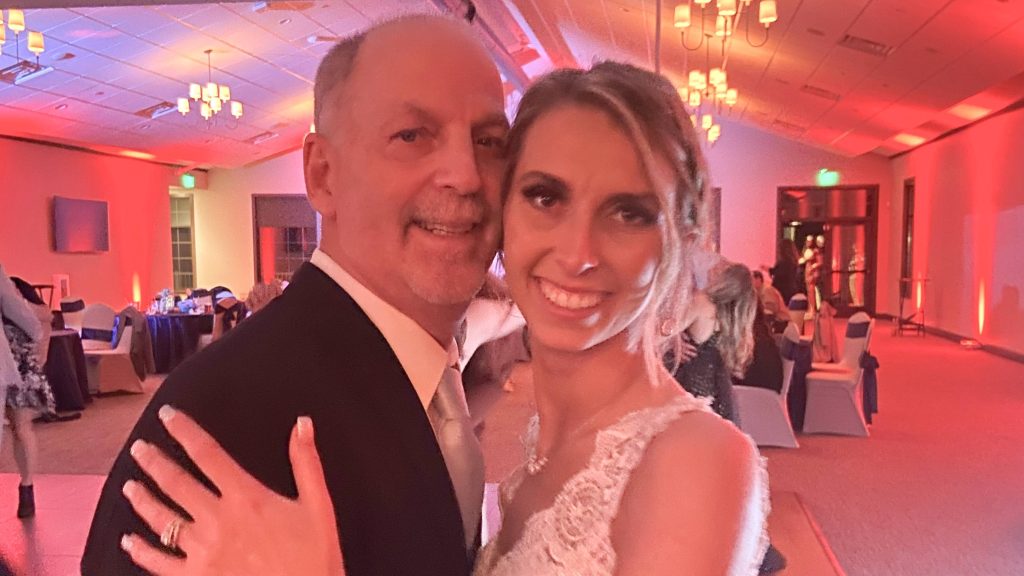
Wedding day walk
Beck was in on Paul's wedding-day secret from the start. "When I met with Lisa about the pump, my daughter was with me, so I asked her to leave the room," Paul recalls. "I told Lisa my main goal was to walk Tabetha down the aisle. I didn’t cry (walking with Tabetha), but the Mayo team got choked up after seeing the video. They know how hard I work on stuff. My muscles were so stiff before the pump surgery; I could hardly walk."
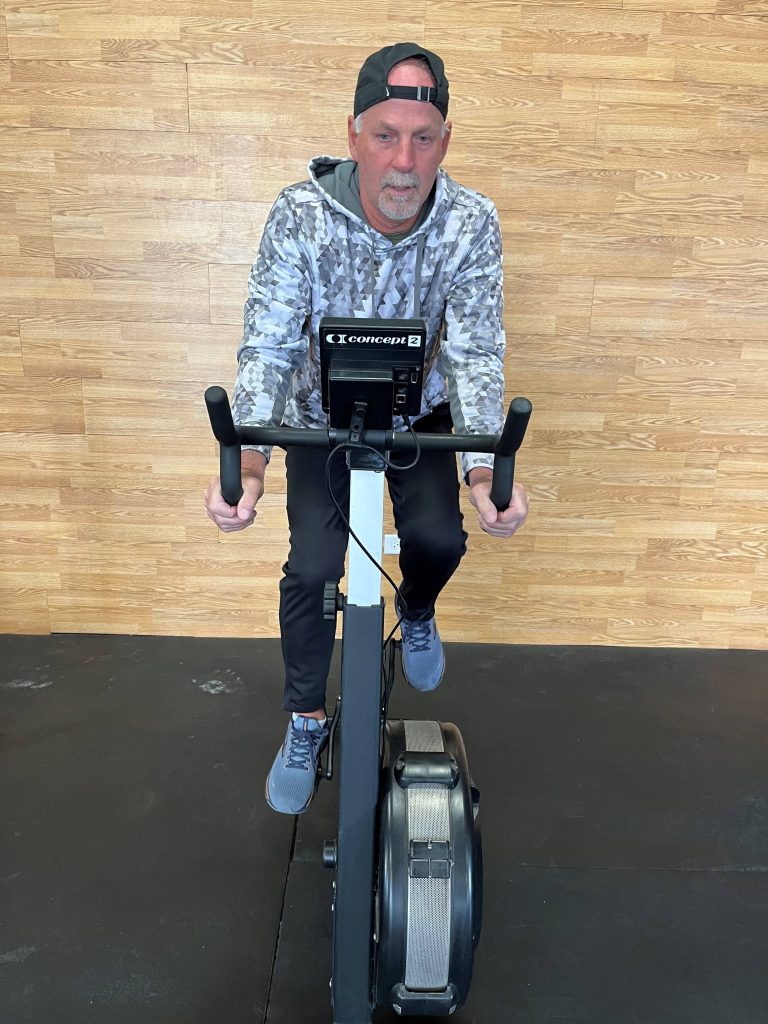
With help from treatment and regular exercise, Paul's spasticity has improved. "I strongly believe if I didn't work out, I would be in a wheelchair."
Tabetha and Cameron Worley married in October 2021. Because Cameron was deployed in the military, they couldn't have a big ceremony. In December 2022, they threw a party, including a second wedding service. The extra months between the two events gave Paul time to work on walking.
For Tabetha, Paul's work with the Mayo team to try the baclofen pump gave her dad "another chance and a boost of confidence to show that his hard work isn’t for nothing. He can do whatever he puts his mind to, even with a little assistance."
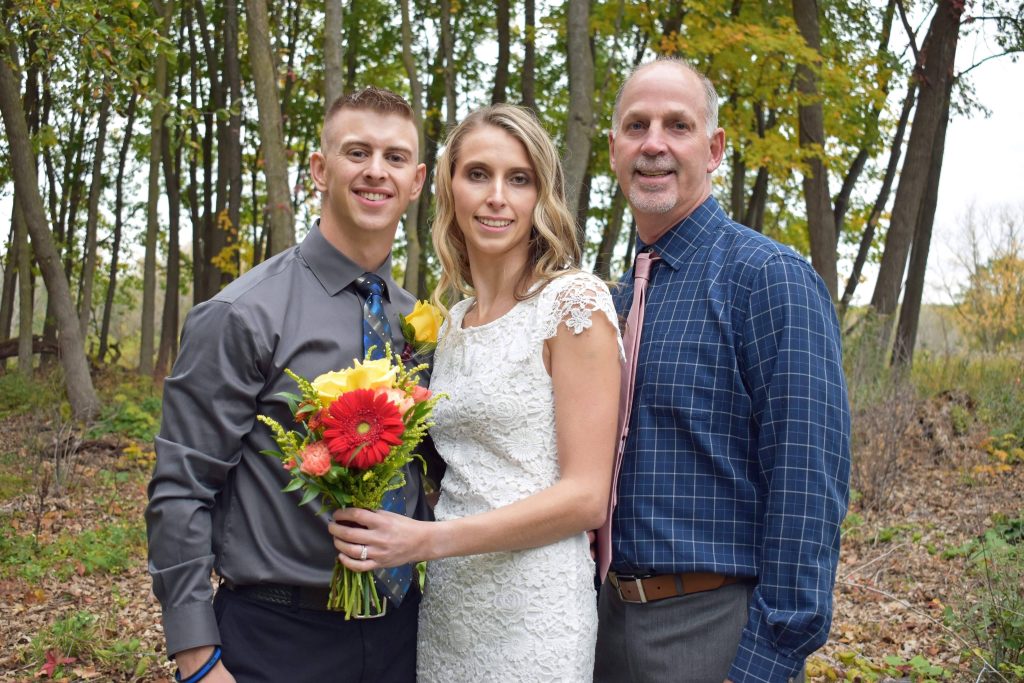
"As a little girl, I always dreamed of my big day, having the beautiful dress, my friends and family watch me marry my soulmate, and have my best friend, my dad, walk me down the aisle," Tabetha says. "As we noticed health concerns with my dad and his ALS diagnosis, I wasn’t sure my dream would be a reality. I never lost hope and always have been there to keep encouraging him."
For all forms of ALS, there is no cure. But new research and treatments give Paul hope.
"Anytime you say you have something like ALS, it's hard," Paul says. "But I have a motto: Never give up. I started working out, going to the Y, using a personal trainer and doing cross fit. I just try to stay bubbly the best I can. I have good days and bad days. I surround myself with people with good attitudes."
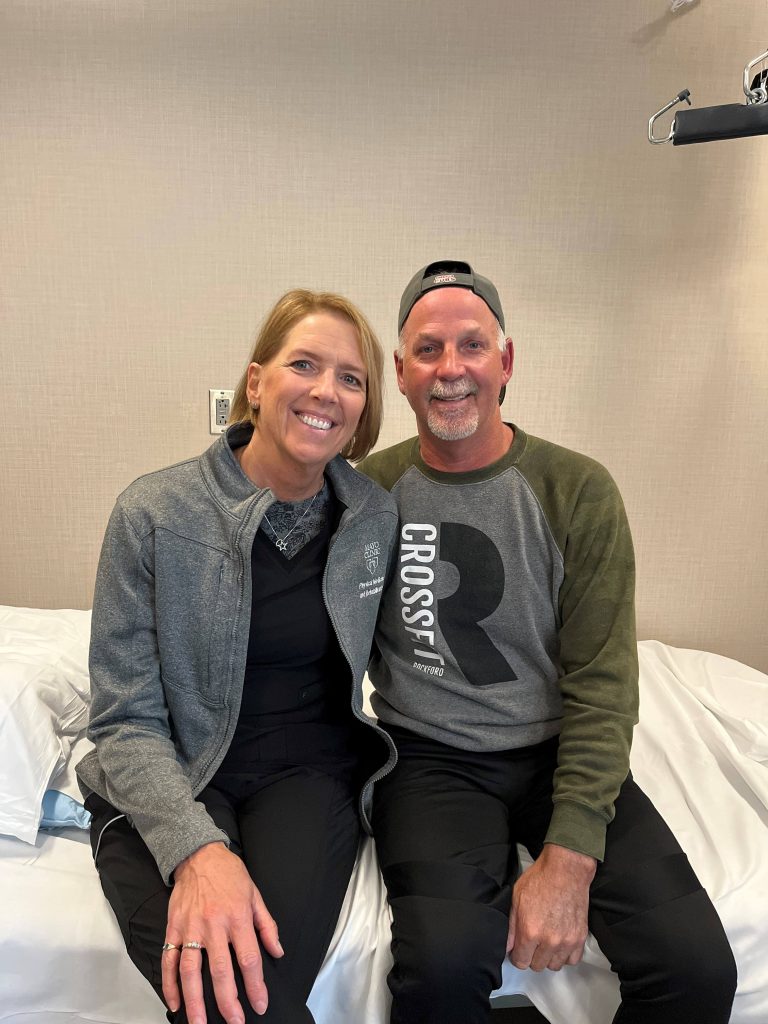
He counts his Mayo care team among the positive influences in his life. "They're a tremendous staff. I can’t say enough good about them. I tell them every three months when I visit them," Paul says. "I tell them how wonderful they are, and they tell me I am."
Related links:
- Maintaining quality care for patients with ALS lessons from the pandemic
- How regenerative medicine is advancing ALS research
- Sandra's story of living with ALS







